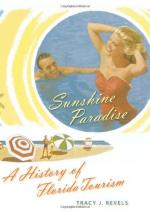|
This section contains 2,260 words (approx. 8 pages at 300 words per page) |

|
The ancient Greek philosophers thought that leisure was a necessary component of human flourishing even though freedom from the demands of necessity was possible only for a few people. Modern industrialized countries have achieved economies that for many of their members facilitate leisure, or, as Thorstein Veblen (1857–1929) suggested, the "non-productive consumption of time" (Veblen 1994 [1899], p. 43). In this context tourism is a form of unproductive consumption that is peculiar to the technologically advantaged. Tourism, however, also has become a major stimulus to economic production.
Purpose and Effects
Tourism is travel based on desires to relax, sightsee, appease curiosity, satisfy a sense of adventure or an adventurous self-image, compete with one's peers or colleagues, re-create images of paradise or luxury or the exotic, and escape. Tourism affects the economies and cultures of destination sites in both positive and negative ways. Those locales may organize their production activities around the satisfaction...
|
This section contains 2,260 words (approx. 8 pages at 300 words per page) |

|


